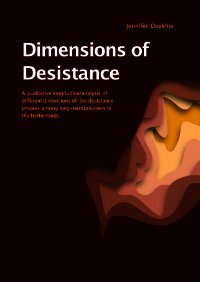By Victoria Knight
to understand the kinds of practical steps and activities needed to help support people on probation with digital resources as a means to nourish their desistance journeys. The digitization of the justice sector is complicated, and at times fraught with tensions and anxiety, and it shines a light on important factors like human rights, equality and safety. Slowly evidence is emerging that identifies some of the beneficial outcomes for people on probation – especially where digital resources can help improve human flourishing in different ways. In addition, staff are crucial in the digitization journey and are important brokers in empowering probationers to live a life without crime and reduce their risk of reoffending, now in a digitized world. The paper focuses on digital resources and services for people on probation that can implicitly or explicitly support, initiate and facilitate their desistance.
Academic Insights 2025/03
Manchester, UK: HM Inspectorate of Probation, 2025. 15p.




